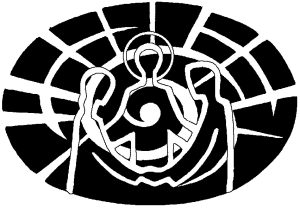Reflections during a time of mourning – Penny Ashton
One of the privileges of being a reader, is that you are at times called upon to sit and pray with people who are near to death. Until I was first asked to do this, I was not aware of quite how powerful this comparatively simple act can be, and how much appreciated by friends and families – even if they are not able to be present, and do not profess any faith. It has also been my privilege to be with families and endeavour to help them put together a funeral service that says what they want to have said after the loss of a much-loved relative.
The readings that we have heard today are frequently used in the funeral service, and are wonderful words to read of comfort for the living, and as a testament to the fact that the last enemy – death – has been overcome by Jesus on the cross. I hope it is as much a comfort to others as it is to me, that Her late Majesty Queen Elizabeth II was a person of deep faith since her childhood, and that death will have held no fears for her. We have that assurance that although the person who was queen for most of our lives – in some cases for all of our lives has died, our God is still in control.
If you have been watching any television at all during the last week, you will have become aware that anyone who ever met the queen, has been called upon to tell in detail their impression of her, and I can’t help feeling that there is not a lot left for me to say – especially as I was not one of the over 30% of the population who had met her! Instead of trying to add to what they have said, I thought it might be interesting to look at some of the themes that so many have repeated about her character traits that made her so loved and admired by all who met her.
The first word that comes to mind is duty. Queen Elizabeth saw clearly from a young age that her life was to be one of duty and service. She pledged herself to our service on her 21st birthday – as she put it recently – ‘in my salad days, when I was green in judgement’ and she has not deviated from that course for over 70 years. There must have been times in those many years when she would have far rather worn her comfortable clothes and spent a day with her family or her pets, or perhaps watching her horses race on television than touring a factory to be shown the intricacies of manufacture, to remember the facts given in briefing, to ask intelligent questions at the right time, and to remember the names of all the people she was introduced to. Or to stand for long periods of time watching folk ceremonies enacted for her benefit in varying climates. I don’t remember if she ever wore a wristwatch, my memory is that she did not, and I wonder if that would be because even to glance at it, or to let her expression of polite interest slip for a moment would have sent the wrong message to anyone who could see her – and the cameras were never off her. She made herself available to all her prime ministers weekly when possible, and many of them have said how valuable her counsel – given from her accumulated wisdom, and without entering the field of political discussion – had been to them. Her duty for many years took her on tours away from her growing family, and there is a very poignant picture of her returning from a long tour and being greeted at the station by her two eldest children – then pre-school age, and of Prince Charles not really recognising her. If it hurt – and I am sure it did, she didn’t show it. And always to return to the red boxes of ministerial papers awaiting her approval.
The second word we could consider is discretion. More than one prime minister has said that the only time when they could speak completely freely about their concerns and know that it would go no further was when they spoke to her. The family’s unofficial motto, adopted by her mother from a saying of Benjamin Disraeli of ‘never complain, never explain’ may have at times been infuriating for some of us who would have liked to know her point of view, but on the whole it has served her well, and she has not deviated from it.. You could perhaps add to it ‘least said, soonest mended’ and it demonstrates her intention of taking the long view in all situations.
The last word we will look at is faithful. Her majesty never made any secret of her faith in God, and whenever possible has attended Sunday church services and we are told that she prayed daily. She said in 2002 ‘I know just how much I rely on my faith to guide me through the good times and the bad. Each day is a new beginning. I know that the only way to live my life is to try to do what is right, to take the long view, to give of my best in all that the day brings, and to put my trust in God’. She spoke freely of her faith in every Christmas broadcast, but I only learned recently that the poem used by her father in his speech in 1939, and later quoted again by her – ‘I said to the man who stood at the gate of the year..’ had been given to King George by the then 13 year old Elizabeth as she thought he might find it useful. Queen Elizabeth was not only faithful to God though. The personal interest that she takes in all branches of the armed forces has been clear in all her dealings with them, as recently as last June, during the Platinum Jubilee celebrations, she made a careful inspection of the guard, and this has won her the undying affection and loyalty of those who serve. Although her reign has seen the disintegration of the empire, she has overseen the founding of the Commonwealth of Nations which she saw as a family, with all the strengths, faults and differences that a family goes through, and she has remained faithful too to that family, visiting almost every member nation within it at least once.
Something that has only become clear in the last week, however, is that she was not just good at her job. We all know that at some stage we will have to pass on our baton to the next generation, and from what I have seen of our new King, she was also a good teacher. I hope I am not the only one who has been impressed by the way he has almost seamlessly dropped into the role that was hers. Although this is a time when he too needs to grieve the loss of a much loved mother, he has put this to one side and has met with officials, politicians and dignitaries in each of the four nations, has listened to long and multiple tributes to his mother in four parliamentary meetings, has walked in long slow processions behind her coffin, and has met, shaken hands with and smiled at crowds wherever he has gone. On Wednesday of this week he returned to Highgrove his home, but his day ‘off’ was to be spent telephoning those heads of state he had not yet spoken to, and dealing with any government business that has come his way. I think he has made an amazing start. We can see I think that we owe a debt of gratitude to her late majesty, and I think that her wish now would be that we give all our support to her son. He has stated his intention and wish to reign as she did – our job is to support him with our prayers.
The Servant Queen and the King she serves – Copyright – Bible Society, Hope, LICC 2016











